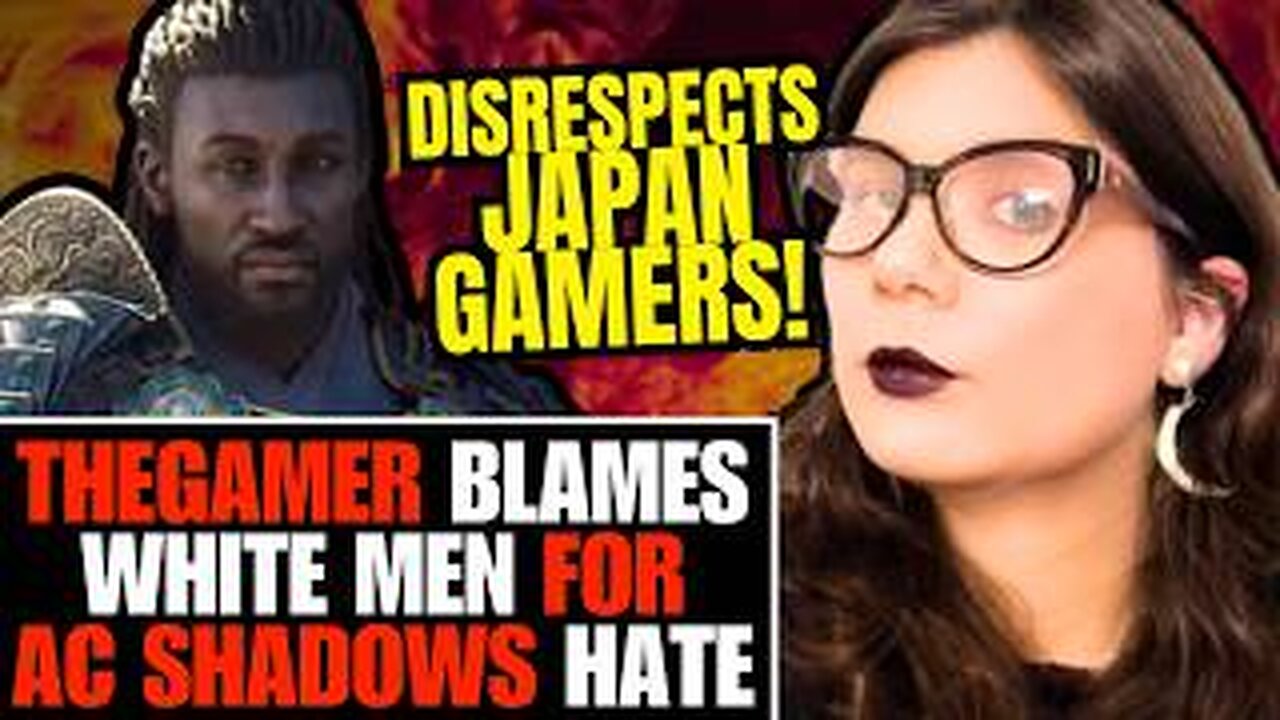Premium Only Content

TheGamer Blames Racist White Men for Assassin's Creed Shadows Backlash
Alright, let's dive into the latest controversy involving Ubisoft and their statement to the Japanese community about Assassin’s Creed: Shadows. Stacey Henley from TheGamer has voiced her outrage over Ubisoft's response, claiming it falls short of addressing what she believes is the real issue: racism and the backlash from so-called "gamer bros."
Henley's article, however, misses the mark and disrespects the genuine concerns of Japanese gamers who felt disrespected by the game. Instead of addressing their valid criticisms, she shifts the blame to straight white men, showing zero self-awareness and understanding of the real issue.
Henley argues that Ubisoft's defense of Assassin's Creed: Shadows failed to address racism directly. She claims the vagueness of the statement left it too open to interpretation, rendering it pointless. She also believes corporations will struggle with their consistent 'no viewpoint' philosophy if tensions continue to rise.
This controversy began when people disliked Yasuke because he was Black. Henley insists that whether this is truly racially motivated hate or an obsession with labeling everything that doesn't look like you a DEI conspiracy (and really, what's the difference?), Yasuke's skin color is the beginning and end. She argues it has become wrapped up in a bigger crusade about whatever wrongs they think Sweet Baby Inc. has perpetrated against them, and the historical accuracy gives it an air of legitimacy. According to Henley, now Ubisoft has ratified that legitimacy.
But here's where Henley shows zero self-awareness: she claims that corporations need to learn that these people do not want to be in your community; they just want to create havoc. Appealing to them costs you other players and makes life worse for everyone. This completely ignores the genuine concerns of Japanese gamers who are upset with the game, instead blaming straight white men for the controversy.
Henley's stance echoes similar sentiments shared by Alyssa Mercante in her recent Kotaku article, which also points out alleged racism and how it fuels negative reactions within the gaming community. However, both articles fail to acknowledge the legitimate grievances of the Japanese community and instead focus on pushing a divisive narrative.
Join me as we break down Henley's arguments and discuss the broader implications of Ubisoft's approach. Is Ubisoft truly avoiding the core problem, or is this a case of overreaction and misplaced blame? Let's dive into this contentious topic and see what it means for the future of gaming culture.
-
 2:56:19
2:56:19
8-Bit Eric (8BE)
2 days agoDragon Age Veilguard Is the Ultimate Woke Trainwreck
712 -
 2:39:28
2:39:28
Jewels Jones Live ®
2 days agoTRUMP’S TSUNAMI | A Political Rendezvous - Ep. 99
49.3K99 -
 2:12:46
2:12:46
TheSaltyCracker
12 hours agoLefties Think Elon Stole Election ReeEEeE Stream 11-10-24
223K276 -
 1:16:52
1:16:52
vivafrei
13 hours agoNEW STREAM! Sorry peeps
155K118 -
 5:56:14
5:56:14
SNEAKO
13 hours agoCheesur edate, Jake Shields & Myron Gaines on election
114K3 -
 39:34
39:34
Nerdrotic
15 hours ago $50.02 earnedAirbursts with Dr Malcolm LeCompte & Giants and Ancient Civilizations with Hugh Newman
123K17 -
 1:03:38
1:03:38
vivafrei
21 hours agoElection RECAP! Long-Count Chicanery! FULL Jan. 6 Pardons! Let's Mock Lichtman & MORE! Viva Frei
172K172 -
 7:52:09
7:52:09
Vigilant News Network
16 hours agoDoctors Drop Post-Election COVID Bombshell | Media Blackout
176K3 -
 14:13
14:13
Scammer Payback
12 days agoTelling Scammers Their Address
165K92 -
 5:43:21
5:43:21
Barstool Gambling
20 hours agoBig Cat and Co Sweat Out the Week 10 Sunday Slate | Barstool Gambling Cave
124K7